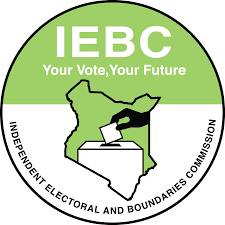Why do leaders keep moving goalposts on IEBC?
By Emeka Mayaka, February 10, 2023You can be forgiven if you don’t know the chairperson and the membership of the National Cohesion and Integration Commission(NCIC) and its offices. For unless you work there or have a grievance related to the commission’s mandate–or you are a journalist, historian or policy wonk–you are unlikely to have an interaction. Okay, how many of its commissioners do you know?
This is not, in any way, to suggest inadequacy on the commission’s mandate, though there have been loud murmurs about its efficiency.
A bit of history. It is the only standing commission among those formed to address the Agenda Four issues identified by the Kofi Annan mediation team as among the causes of the 2007/8 post-election violence.
It has a huge mandate. It is supposed to facilitate and promote equal opportunity, good relations, harmony and peaceful co-existence of people of different ethnic and racial communities and advise the government accordingly. It is also supposed enhance tolerance, understanding and acceptance of diversity in all aspects of national life.
Yet its membership and composition doesn’t generate emotive national debate.
But one would not say the same of the Independent Electoral and Boundaries Commission (IEBC) considered the heavyweight of the Chapter 15 tribunals.
Because of its mandate, the commission plays a fulcrum role at the heart of our democracy.
There is strong nexus between resource allocation, wealth creation and political power in our part of the continent.
There is a demonstrable, though unfortunate pattern, that political power tends to give individuals access to economic opportunities for self-enrichment.
Ours is a society that tends to reward individuals who cannot account for their massive wealth with political power without question.
This partly rationalizes and gives incentive to corruption and inspires battles for access to power that has defined our brand of politics since independence.
This cut-throat competition for political power and fragility of our nationhood require a referee whose conduct is beyond reproach.
The conduct of the electoral commission is partly blamed for the deadly violence that followed elections in the past. And the major discussion after the election by the politicos turns to revolve around its composition.
And, here, positions differ depending on who won or lost the elections. The inconsistency among our key political competitors on the management of elections is mind-boggling, for lack of a better word.
Take the case of President William Ruto, Raila Odinga and Martha Karua, especially around the enduring contention on whether political parties should nominate individuals to the commission.
While in 7th and 8th Parliaments, Raila and Karua irritated President Daniel arap Moi with their demands for an impartial electoral agency. Their agitation was anchored on the fact that members of then Election Commission of Kenya were solely appointed by Moi, who was competitor in the polls. This gave him undue advantage over his rivals.
That is why the Kivuitu commission that conducted the much-acclaimed 2002 polls was a negotiated team. The Inter-Parties Parliamentary Group (IPPG) reforms package in late 1997 opened a window for the opposition to nominate individuals to the commission.
Out of the 10 commissioners picked by the opposition, Mwai Kibaki’s DP, in which Karua was a member, nominated three commissioners—Kihara Muttu, William Mbaya and John Abel Nyamu. Ford Kenya seconded a similar number.
But when Raila differed with President Kibaki after the 2002 polls Karua spoke at cross purpose over composition of the commission. Raila demanded that political parties be allowed to suggest replacement to some of the retiring commissioners but Karua insisted that that was the “sole” responsibility of the President.
Lack of confidence and suspicions emanating from the appointment of the ECK commissioners who later conducted the disastrous 2007 polls was partly blamed for the ensuing violence.
Ruto has consistently argued that one cannot appoint a referee in his own game. Yet after the last election, he has set in motion a legislative regime that seems clearly tailored to hand control of appointments to the IEBC in the presidency.
The Constitution which the President swore to defend, decrees that the IEBC must be impartial, not a marionette of political players. The Supreme Court has also reinforced the tenet that elections must meet the constitutional threshold of viability, security, transparency and integrity.
Then Raila flies out to address a leadership meeting of eminent Africans. From the comfort of Abuja, he declares that election management should be devolved and parties allowed to second representatives to electoral bodies. Which is which?
— The writer is the Political Editor, People Daily
